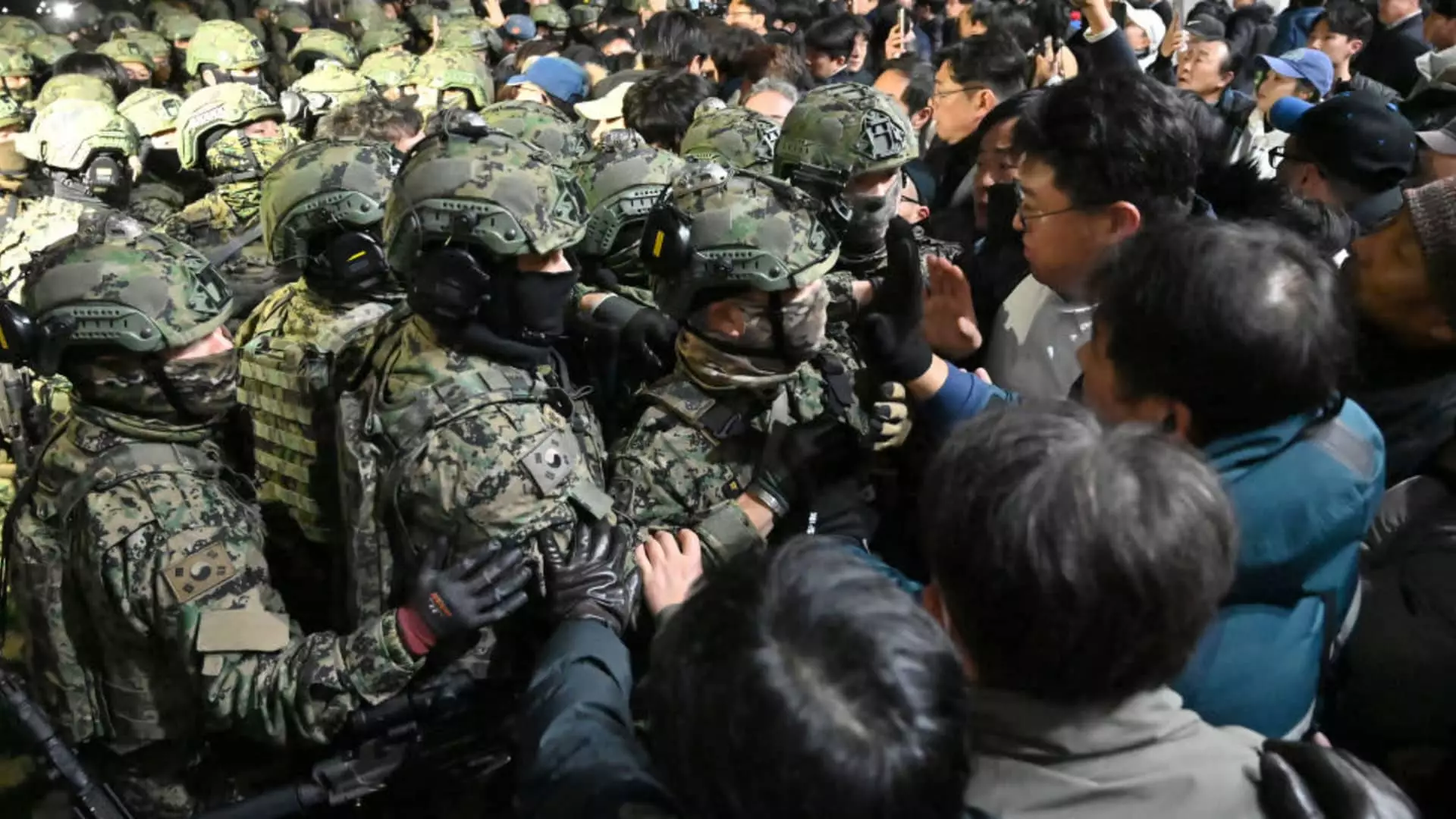On Tuesday, South Korea’s financial markets experienced notable volatility, primarily driven by an unexpected political upheaval involving President Yoon Suk Yeol’s controversial martial law declaration. Such political turbulence raises significant concerns over the stability of South Korea, the world’s 13th-largest economy. Amid growing anxiety among investors, the iShares MSCI South Korea ETF—an exchange-traded fund tracking major South Korean corporations—plummeted as much as 7%, hitting a 52-week low before recovering slightly by the day’s end. The fluctuations in market value not only reflect investor apprehension but also indicate a shaky confidence in the nation’s governance.
The trading volume on the Korea Exchange surged dramatically, with over 35 million shares traded, far exceeding the 30-day average. This sheer volume underscores the heightened urgency and anxiety that investors experienced. Prominent companies such as Korea Electric Power and Coupang saw significant declines in their stock prices, with losses of 5% and 6% respectively. These shifts signal broader implications for the tech and energy sectors, as investors react to fears stemming from possible political instability. Additionally, further declines were observed in major corporations like Posco, demonstrating that the repercussions of the political crisis are widespread within South Korea’s business environment.
In an extraordinary rapid response to the martial law issued by President Yoon, 190 out of 300 lawmakers convened with a resolute aim to overturn the emergency declaration less than three hours after it was announced. This immediate action speaks volumes about the potential backlash from the legislative body against perceived authoritarian measures. President Yoon’s accusations against opposition parties for allegedly supporting North Korea further complicate an already tense political atmosphere, potentially leading to heightened partisan divides in governance and policymaking.
Meanwhile, the international community, including the White House, is closely watching the developments in South Korea. The National Security Council’s statement reflects a commitment to monitor the evolving situation, signifying that foreign governments recognize the potential implications of South Korea’s domestic politics on regional security and international business. The South Korean won also reacted to the turmoil, declining by 1.9% against the U.S. dollar, indicating that global investors are recalibrating their strategies amid uncertainties surrounding South Korea’s political landscape.
The turbulence seen in South Korea’s stock market amid the president’s martial law declaration and its rapid withdrawal presents a crucial moment for investors and policymakers alike. As the nation confronts the implications of political strife, stakeholders must navigate a landscape fraught with uncertainty and potential volatility. This juncture could shape South Korea’s economic trajectory for years to come, and the efficacy of its government’s response will be crucial in restoring market confidence. As events unfold, observers will remain vigilant, assessing both the political stability and economic repercussions that may follow in the wake of this political crisis.

